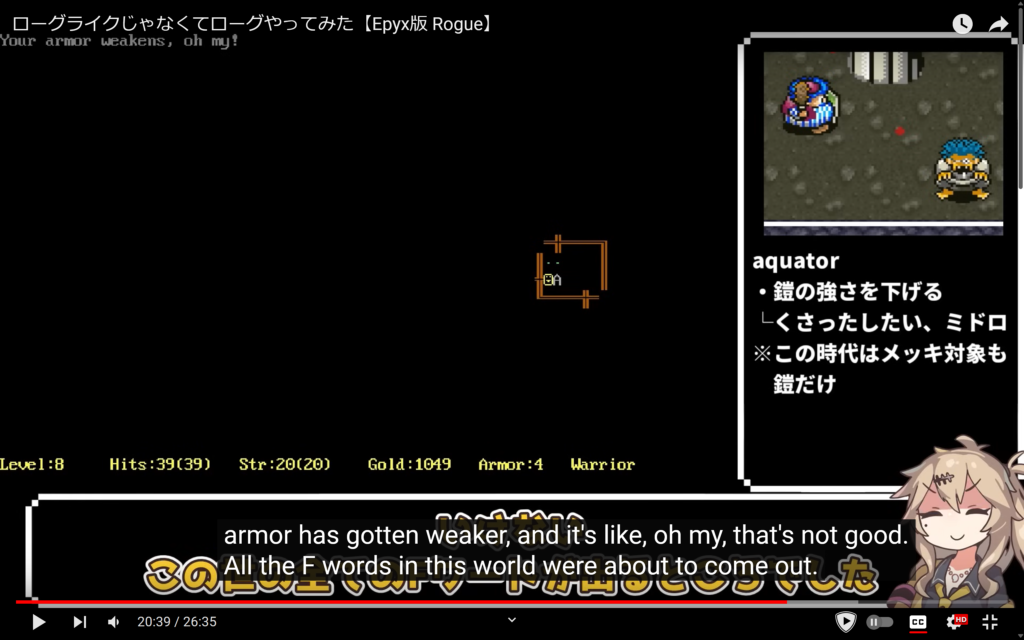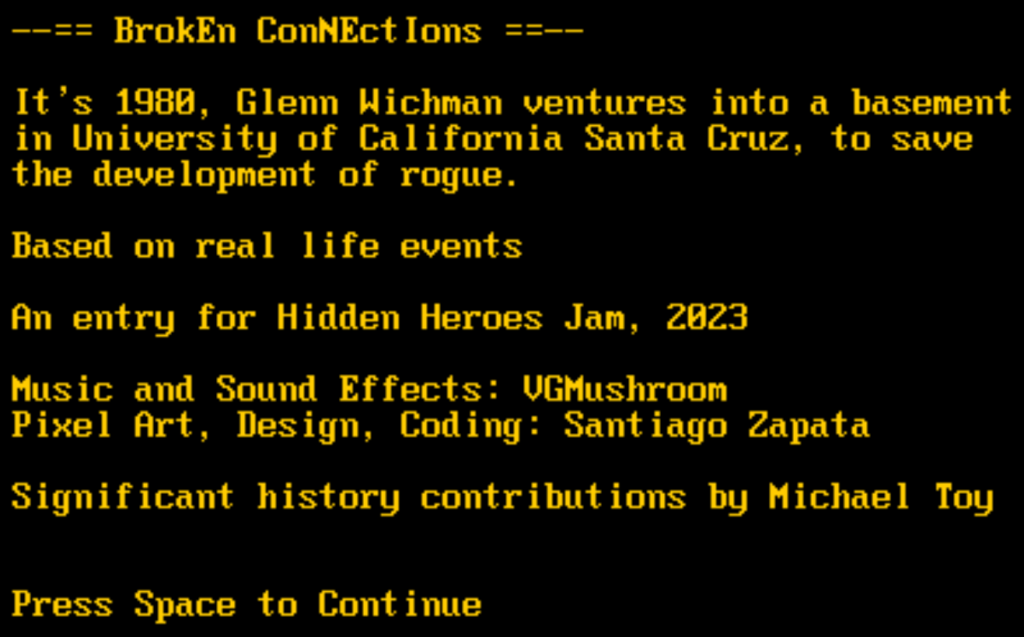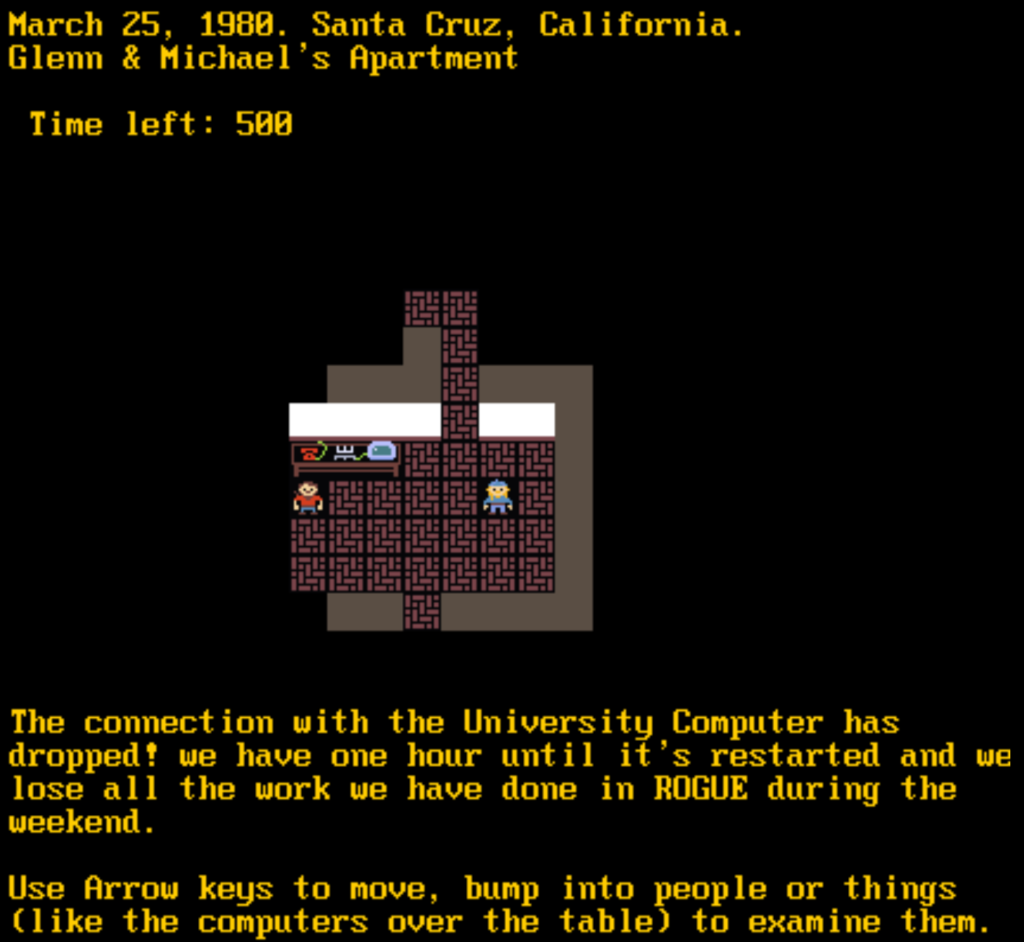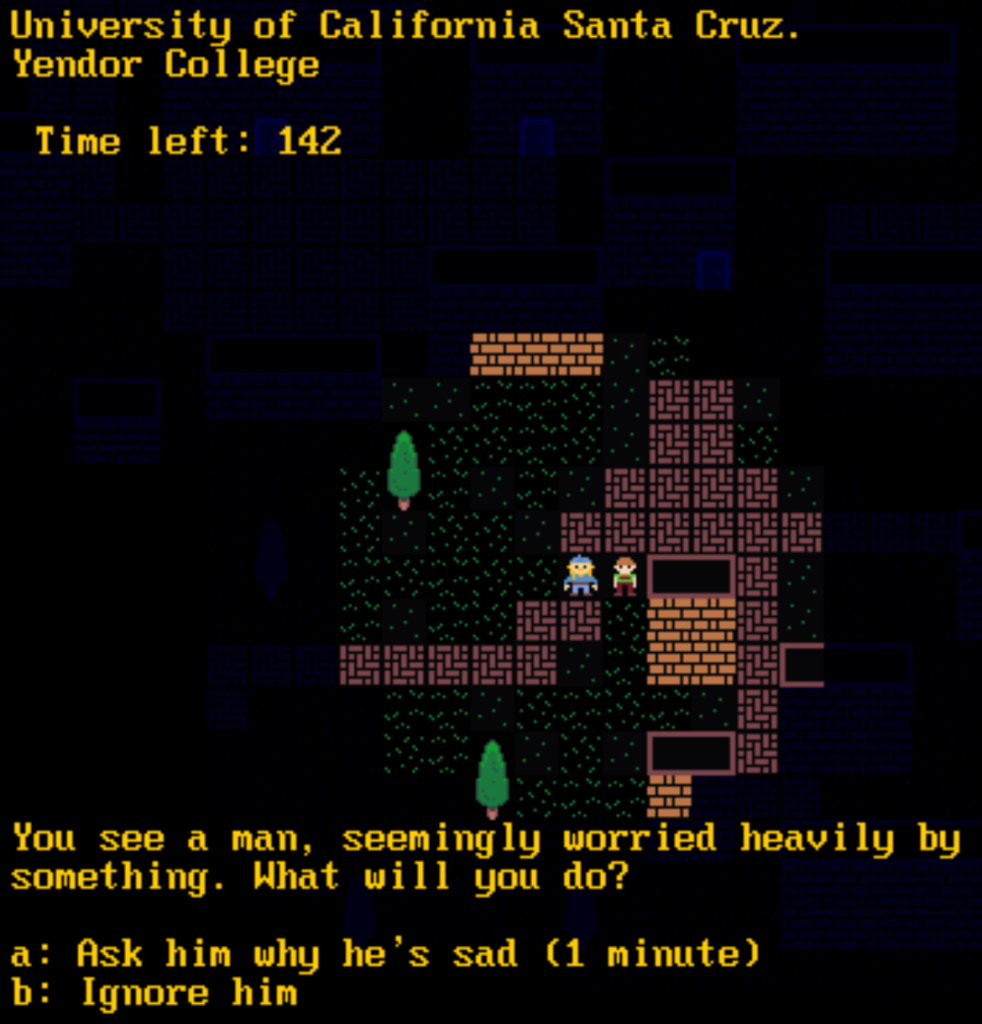Hello everyone, I’m back! Today’s find is an archive of old versions of Rogue!

While there were games with aspects of Rogue before it conquered university Unix systems, like Beneath Apple Manor, Rogue still deserves its status as the namesake of the roguelikes. Its great popularity on campuses inspired a slew of expansions and variations.
The world of early roguelikes wavers in its documentation and preservation. There’s several early roguelikes that are nearly unplayable today: the Roguelike Restoration Project (their site appears to have returned to the internet in 2022) has tried to preserve them but its manager has time constraints. I know that Herb Chong, who created a variant called UltraRogue, is still around, and has expressed interest in getting the code running again, but it’s a difficult project, not the least reason for being that the original game saved games by creating and reloading raw chunks of memory. (Roguelike Restoration Project put the original source up here if anyone wants to take a crack at it.)
Several versions of UltraRogue, as well as many versions of Rogue, Advanced Rogue, Super Rogue, XRogue, and others, can be found on The Rogue Archive. Playing some of them might be difficult, but the code is there, sometimes in object form, sometimes as source. It preserves the code for Rog-O-Matic, the computer program that, itself, plays Rogue. You can even find more obscure variations of Rogue there, like HexRogue (which has become unplayable on its home site since Java support for browsers was abandoned), zRogue (an implementation for the Infocom zMachine), PalmOS versions, something called Advanced SuperTurbo Rogue Plus, and more.
I’ve always maintained my affection for Rogue, even if in the eyes of many it’s deficient in features these days. But that means it’s short, it won’t consume weeks of your free time to finish it, while it’s also complex enough to maintain interest, and challenging enough that it’ll take a while to master. If, in this Year of our Frog 2024, you haven’t tried Rogue yet, well, why not? You’ll probably die, but in the end, that’s better odds than real life!




